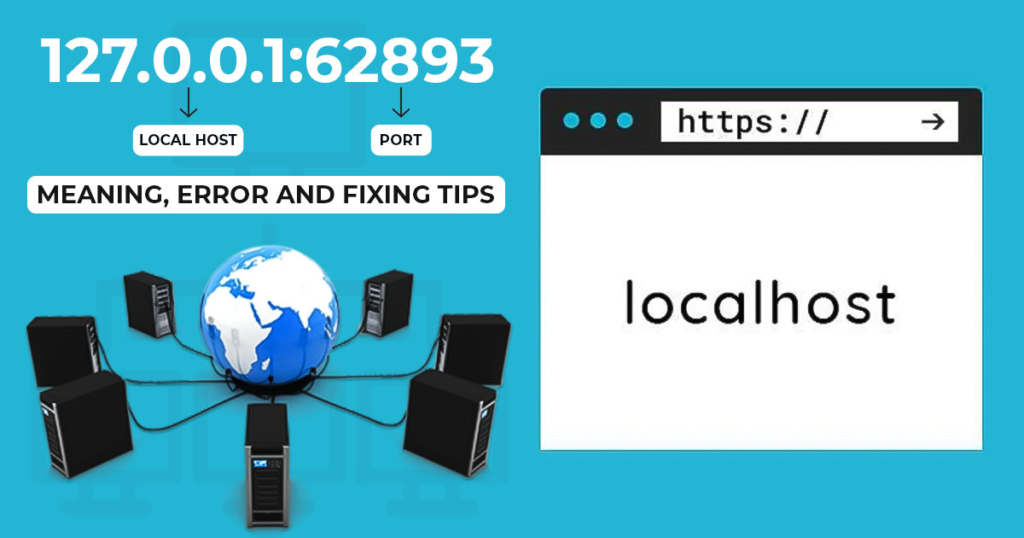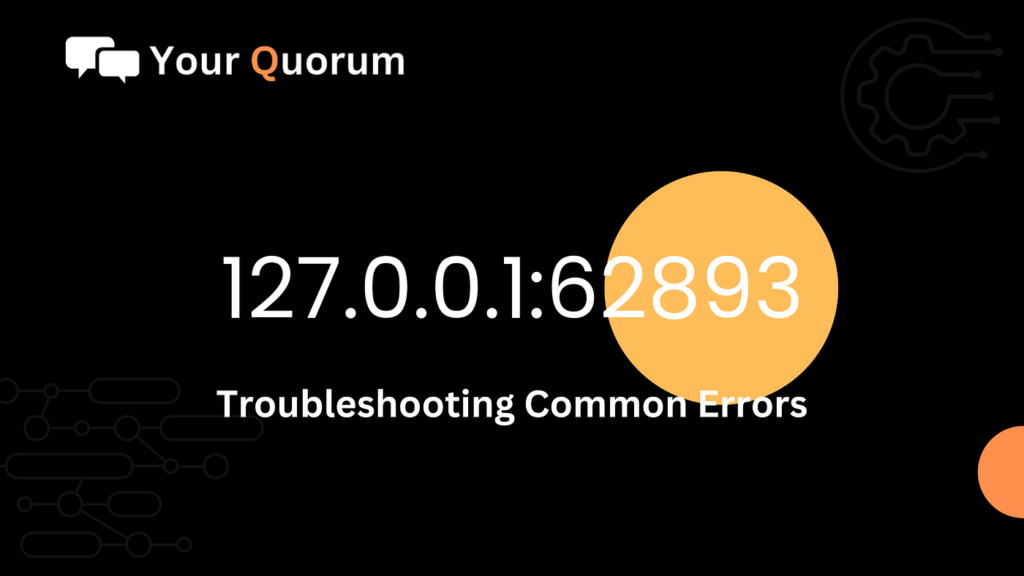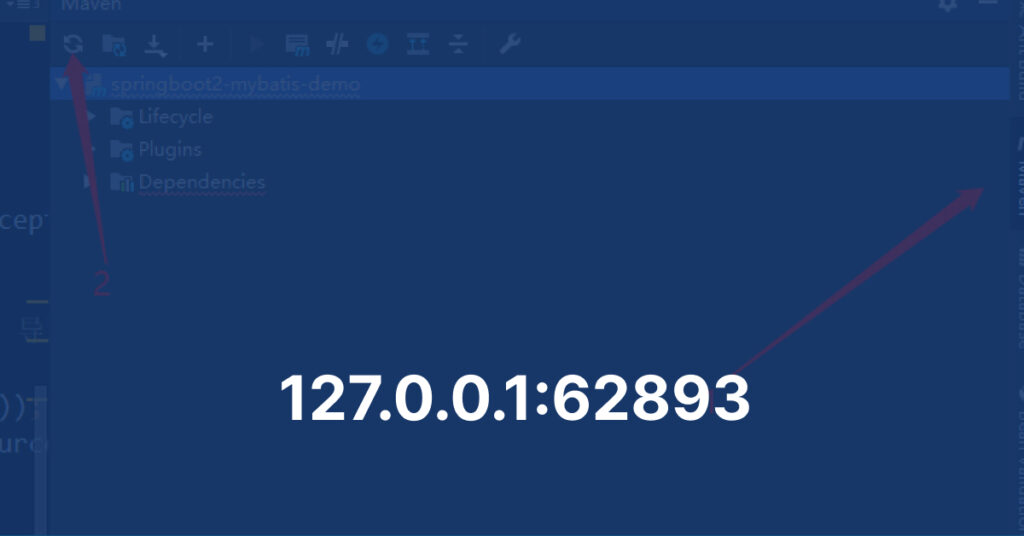In this article, we’ll be diving deep into understanding what 127.0.0.1:62893 means, how it works, and its importance in networking. If you’re unfamiliar with IP addresses or localhost concepts, don’t worry! We’ll break it down in simple terms that anyone can follow. Whether you’re a beginner in networking or someone with some experience, you’ll get valuable insights into how this address affects your network.
Understanding 127.0.0.1:62893
127.0.0.1:62893 is often considered a special address in the world of computer networks. It’s a combination of an IP address (127.0.0.1) and a port number (62893). To understand its significance, we need to break it down into two parts:
- 127.0.0.1 is known as the “localhost” or “loopback” address. It refers to your own computer when you’re trying to test network services locally, without needing to connect to an external network.
- 62893 is a port number. A port number helps a computer identify specific services running on it. It’s like a mailbox number where different services can receive data.
When combined, 127.0.0.1:62893 is used to connect to a specific service running on your own machine. It’s useful for testing, development, and troubleshooting.
The Role of Localhost and IP Addresses
An IP address is essentially a unique identifier for devices on a network, kind of like how your home address identifies where you live. The most common IP address used in networking is 127.0.0.1, which is referred to as the “localhost.” This address is used for loopback communication—meaning data sent to this address is sent back to the same device that sent it.
In other words, when you send data to 127.0.0.1, it doesn’t leave your device. It stays within it. This is particularly useful for developers who want to test a website or server without putting it on the internet.
How 127.0.0.1:62893 Impacts Your Network
Having a 127.0.0.1:62893 address on your machine impacts how the system handles networking tasks. When a service or application wants to communicate internally, it sends information to 127.0.0.1 and chooses a specific port number (like 62893) for that connection. This process ensures that different services on the same machine don’t interfere with each other.

For example, if you’re running a web server locally on your machine, it might use port 62893. When you connect to 127.0.0.1:62893, your computer knows it needs to forward this request to the web server process that’s running on that specific port.
Importance of Localhost in Networking
The local host (127.0.0.1) plays a vital role in testing and development. It allows developers to run applications and websites locally before they are deployed on the internet. Without 127.0.0.1, it would be more difficult to check the functionality of software without needing an external server.
Using localhost is also a great way to ensure your machine is functioning properly before making a network connection. It’s like testing a car in your garage before driving it on the road.
Common Issues with 127.0.0.1:62893
One common issue when working with 127.0.0.1:62893 is port conflicts. This happens when multiple services try to use the same port, causing them to collide and preventing one or both from working properly. Another issue could be firewall restrictions, where the firewall blocks connections to localhost, even though it’s on your own machine.
Fixing Errors in 127.0.0.1:62893
If you’re facing issues with 127.0.0.1:62893, the first thing to check is whether another service is using the same port. You can either change the port number or stop the conflicting service. Additionally, ensure your firewall settings aren’t blocking the connection to localhost.
In some cases, restarting your device can also fix network issues, especially if they are related to temporary system glitches.
How 127.0.0.1:62893 Works on Your Device
The way 127.0.0.1:62893 functions on your device is pretty straightforward. When a program on your computer wants to send data to another program running on the same machine, it directs that data to the local host address (127.0.0.1). Then, it adds the specific port number (62893) to identify which service it should communicate with.
For example, a local database running on your device may listen to 127.0.0.1:62893, and whenever an application needs to access it, it will connect to this address. The system then ensures that the request gets to the correct service.
Why Use 127.0.0.1:62893 in Your Network Setup?
There are several reasons why 127.0.0.1:62893 is used in network setups, especially in testing and development:

- Isolation: It allows you to isolate and test your application locally without needing to connect to external networks.
- Security: Since data does not leave your machine, it’s more secure for sensitive testing.
- Performance: It provides faster communication since it doesn’t require a network connection outside of the local machine.
Using 127.0.0.1 with a specific port number like 62893 allows for more organized testing and reduces the chances of network interruptions.
Practical Uses of 127.0.0.1:62893
There are many practical uses for 127.0.0.1:62893, especially when it comes to network diagnostics and local development.
Testing Servers with 127.0.0.1:62893
Developers use 127.0.0.1:62893 to test servers, applications, and websites without publishing them online. This allows them to detect any errors in a safe environment before deployment. It’s common for web developers to test how their local server handles connections on specific ports like 62893.
Ensuring Security with 127.0.0.1:62893
For security purposes, developers often use 127.0.0.1:62893 to test sensitive software without exposing it to the wider internet. By using the localhost address, developers can ensure that potential vulnerabilities are caught early without risking external access.
Common Mistakes to Avoid with 127.0.0.1:62893
- Using the wrong port number: Ensure that the port number is available and not being used by another service.
- Ignoring firewall settings: Sometimes, firewalls block localhost connections. Make sure that your firewall isn’t preventing communication on 127.0.0.1:62893.
- Forgetting to configure services correctly: If you’re using 127.0.0.1:62893 for testing, ensure the service you’re testing is correctly configured to listen on that port.
The Bottom Line
In conclusion, 127.0.0.1:62893 is an essential part of networking, especially for developers and those testing network services locally. By using localhost and a specific port, you can isolate and test services in a safe and controlled environment. Understanding how this address works on your device, the benefits of using it, and how to troubleshoot any issues can make your network management much smoother.
By knowing about 127.0.0.1:62893, you’re better prepared to handle local testing, secure connections, and avoid common mistakes that could disrupt your network setup. Whether you’re a beginner or a seasoned developer, this knowledge is crucial for smooth and efficient network operations.


